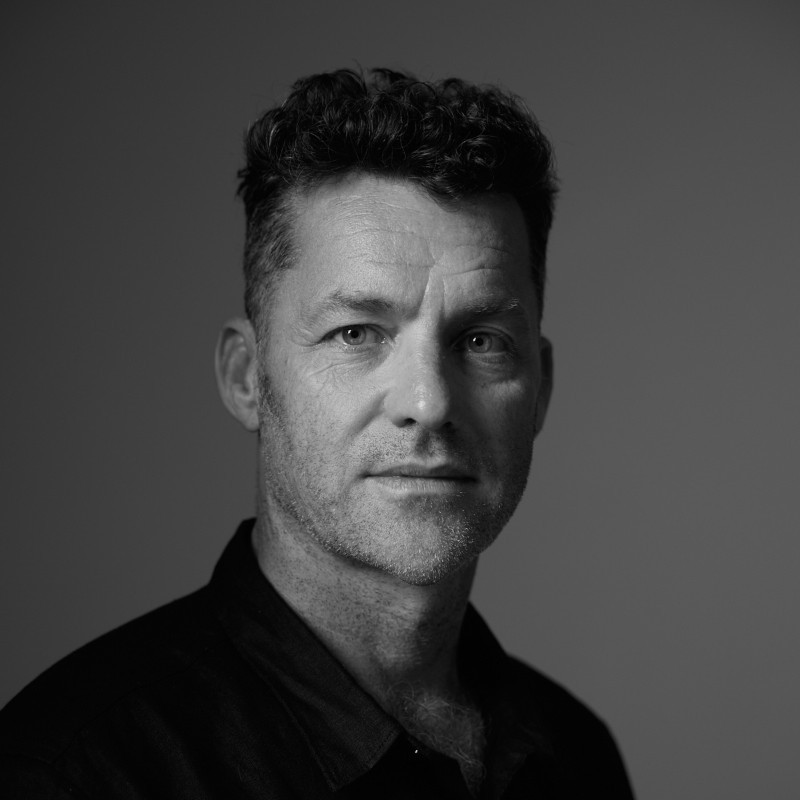
ASKING FOR A FRIEND
How do I get a job as an international student on a work visa
ASKING FOR A FRIEND - QUESTION
Landing a creative job as an international student in Australia comes with unique challenges, but your visa status doesn't have to be a barrier. Simon Lee, Chief Creative Officer at The Hallway, shares his own journey from washing cars to creative leadership, offering practical advice on demonstrating commitment and building industry connections. Psychologist Ash King provides insights on managing the emotional toll of job hunting and maintaining resilience through rejection. Together, they explore how persistence, networking, and becoming a "known quantity" in the creative community can overcome initial visa concerns. This honest discussion addresses the reality that employers care more about long-term commitment than visa categories, while acknowledging the genuine challenges international students face in proving their dedication to building an Australian career.
Landing a job as an international student: navigating visa concerns and building your career
Job hunting is tough enough without wondering if your visa status is working against you. If you're an international student with solid experience, a strong portfolio, and still struggling to land that first role, you're not alone. The creative industry can feel particularly challenging when you're trying to prove both your talent and your commitment to staying.
This question was answered by Simon Lee, Chief Creative Officer and joint owner of The Hallway, with over 20 years of experience in the Australian creative industry including his own journey as an international arrival, and Ash King, psychologist and cyberpsychology researcher at the University of Sydney, who specialises in supporting creatives with mental health and wellbeing challenges. Andy Wright served as host, founder of Never Not Creative and CEO of Streamtime.
Your visa probably isn't the real barrier
The short answer? Your visa status shouldn't be a deal-breaker. As Simon explains: "100 percent yes, there is scope for international students in the market. Right now we're suffering probably one of the worst talent shortages I've known in 20 years of working in this business."
The real issue often comes down to perception rather than policy. Simon recalls his own experience arriving in Sydney: "They kept asking me, 'Are you here to stay? Are you here to stay?' There was a question of commitment because there is a bit of an investment from the employer to get you on board, and if you're going to leave in 12 months time, it's quite a difficult decision."
The commitment question matters more than the visa type
Employers aren't necessarily worried about your visa category, they're concerned about whether you'll stick around long enough to make their investment in you worthwhile. Simon found that "when I was talking to people further down the track, 10 months on, when I'd done a few jobs in different places, I was more of a known quantity and had given more of a sense that I was here for a longer-term commitment, it got easier."
The key is demonstrating your commitment to building a career in Australia, not just gaining short-term experience.
Persistence and networking are your best tools
Simon's advice is straightforward: "Persistence and commitment would be the two words. Keep getting out there, meet as many people as possible so that you become a known quantity."
This isn't just about applying for jobs online. It's about becoming part of the creative community, attending industry events, and building relationships that help people see you as someone who's genuinely invested in the local scene.
The emotional toll is real and valid
Ash acknowledges the psychological challenge: "It's recognised that it is hard. Landing a job, copying the rejection letters, or even worse not hearing anything back, just leaves us feeling pretty crap about ourselves, about our potential, about our work."
She emphasises the vulnerability involved: "People don't talk about the vulnerability required in putting your portfolio out there and then for it to just be met with a resounding no across different applications."
Be gentle with yourself during this process. These feelings are normal and don't reflect your worth or potential.
The detour might be part of the journey
Simon's path wasn't linear. He went from being a senior copywriter in Paris to "washing cars on Military Road" in Sydney. But he reflects: "In hindsight, the weird and wonderful other work that I did was great experience and ultimately a great story 20 years later."
Whether it's working in hospitality, retail, or completely unrelated fields, these experiences can provide valuable perspective and skills that enhance your creative work later.
How NNC Circles can support you
Job hunting as an international student can feel isolating, especially when facing repeated rejections. Never Not Creative Circles offer peer support groups specifically for creatives dealing with challenges like this. These confidential, non-competitive spaces connect you with other creatives who understand the unique pressures of building a career in a new country. You'll find practical advice, emotional support, and the reassurance that you're not alone in this journey. Learn more about NNC Circles.
When to seek professional help
If the stress of job hunting is significantly impacting your mental health, sleep, or daily functioning, it might be time to seek professional support. Persistent anxiety, depression, or feelings of hopelessness aren't just part of the process. Professional counsellors can help you develop coping strategies and maintain perspective during challenging times. Find professional help resources.
The NNC Support Line is here for you
If you're facing workplace issues, unpaid work, or other industry-related problems during your job search, Never Not Creative's Support Line offers free introductory legal advice. This can be particularly valuable for international students who might not be familiar with Australian workplace rights and protections. Access the Support Line.
Building your foundation with NNC resources
Never Not Creative's Internship Guide and Resources can help you navigate the Australian creative landscape more effectively. These resources cover everything from understanding local industry practices to building networks and finding legitimate opportunities. For international students, this local knowledge can be invaluable in positioning yourself as a serious candidate. Explore NNC internship resources.
Never Not Finishing School: bridging the gap
Never Not Finishing School is designed to help emerging creatives develop the practical skills and industry knowledge that formal education sometimes misses. For international students, this can be particularly valuable in understanding the nuances of the Australian creative industry and building confidence in local practices and expectations. The program connects you with experienced mentors and provides real-world experience that employers value. Learn about Never Not Finishing School.
You're not alone in this journey
Landing your first role as an international student takes time, persistence, and a bit of faith in yourself. The creative industry needs diverse perspectives and fresh talent, and that includes yours. Focus on building genuine connections, demonstrating your commitment to staying, and remember that every "no" is getting you closer to the right "yes."
Your visa status is just one part of your story, not the defining factor in your success.
our guests
Industry Leader

Simon Lee
Enigma
Mental Health Expert

Ash King
ashking.com
Host

